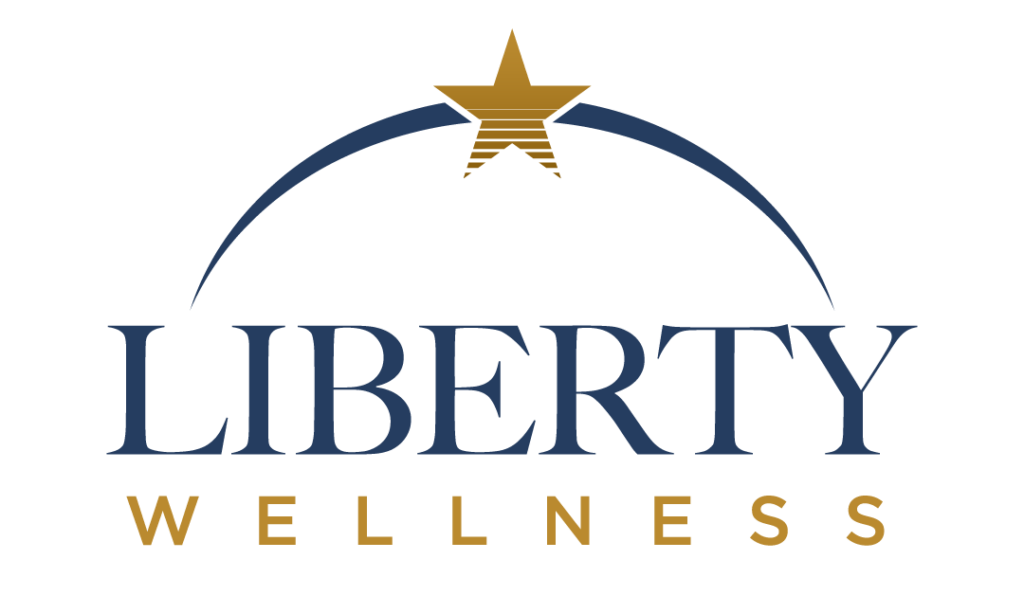When many think of improving mental health, they think of modern psychology and the innovative psychological interventions that may be necessary to improve mental health. Some of the latest psychological techniques and strategies can indeed improve an individual’s mental health, but today we wanted to highlight an age-old virtue that can be cultivated to have one of the most profound effects on the mental health of anyone with any condition. That virtue is gratitude. Due to the vital nature of gratitude for mental health, Liberty Wellness incorporates gratitude skill development as a primary aspect of our program.
Cultivating gratitude is one of the most essential ingredients for enhancing mental health for many mental health disorders, such as major depressive depression, generalized anxiety disorder, and post-traumatic stress disorder. For example, individuals who develop higher levels of gratitude are more likely to experience post-traumatic growth in the years following a traumatic event.
Gratitude is more than simply taking a few minutes each day to consider a few things to be thankful for. It is definitely more than taking time once a year to be thankful while eating turkey on Thanksgiving. Gratitude involves the perceptual system that we utilize to view reality. Individuals with a more robust gratitude lens in life are able to view people, situations, stressors, themselves, and life itself from an appreciative perspective. Individuals with a weaker gratitude lens in life struggle to perceive the benefits of a particular situation, and become myopically focused on aspects of any given situation that are not preferred. Fortunately, gratitude is not simply something you have or not, but a skill that can be practiced and improved upon. For thousands of years, human societies that have flourished have emphasized it as a chief virtue to work on improving throughout the lifespan. It is a skill that has one of the most significant returns on investment compared to most other skills one can attempt to develop in the arena of mental health. If our perceptual view of reality is cultivated to perceive benefits, good, beautify, etc. more effectively, then this gratitude lens starts to positively impact every area of our lives, from our relationships to our vocational life, to even our physical health. It makes sense that improving a skill that benefits all aspects of life would, by default, improve mental health conditions at large.
At Liberty Wellness, teaching individuals the value of gratitude and how to cultivate gratitude on a daily basis is a significant focus in our mental health and addiction treatment. It may sound overly simplistic and unsophisticated, but when one reads the psychological research on the positive benefits of gratitude to improve well-being, it becomes clear that there are few psychological skills more important than learning how to be grateful. Since it is a skill, it is something that takes time and is improved upon via a process of small practical steps. In our program, we attempt to teach individuals those steps. One of them is how to consistently reframe their cognitions to focus on the beneficial aspects that may be present in any given situation, as opposed to ruminating on parts of a situation that are less than desirable.
One of the many reasons developing gratitude is such an essential and powerful tool is that it is an internal psychological mechanism that produces psychological stability and subjective well-being. Subjective well-being (similar to happiness) correlates more strongly with gratitude than almost any other aspect of a person’s life. Generally, an individual who scores high on the cultivated trait of gratitude has higher subjective well-being, and an individual who scores low on the cultivated trait of gratitude has lower subjective well-being. Gratitude is more correlated with a person’s subjective well-being than most aspects of life, including income, where they live, their type of job, and overall financial status. Many individuals who enter treatment are seeking to reclaim or obtain for the first time the external aspects of life that have been diminished through addiction or unstable mental health. However, any individual who obtains abstinence and can stabilize enough to reenter society will not be able to sustain subjective well-being long-term unless they develop sustainable levels of gratitude.
Having a job that one is not grateful for has minimal psychological value. Having financial prosperity that one is not grateful for has minimal psychological value. Having people in life that one is not grateful for has minimal psychological value.
Essentially, anything that may be valuable to a human that we are not grateful for has a minimal benefit for our mental health because the lack of gratitude prevents us from experiencing the benefits. To possess something without perceiving its benefits in some ways is akin to not possessing it at all. It is like a blind person who possesses a beautiful painting, and thus does not enjoy the painting though it is hanging on the wall in their room every day. If you cannot “see” what you possess when you have it, you do not experience its benefits much.
At Liberty Wellness, a dual diagnosis treatment center in New Jersey, we take the psychological literature on gratitude seriously and implement the cultivation of gratitude with the individuals we serve. We offer a wide range of psychological interventions to improve the mental health of individuals, but developing the skill of gratitude is one of the interventions we utilize the most. If we help people obtain all of their life goals, but do not teach them to be grateful when those goals are achieved, then we have set the person up for failure. Lastly, we wanted to share a modification of a cliched quote about the importance of not simply giving something to someone to help them short-term but giving them the skills to help themselves long-term.
“If you give a person what they want in life, you help them be happy for a day. If you teach a person to be grateful for what they have in life, you help them be happy for a lifetime.”




